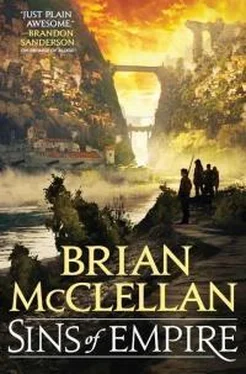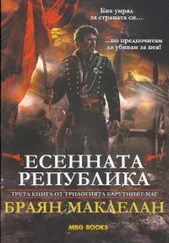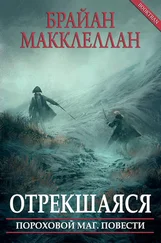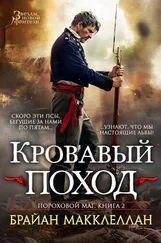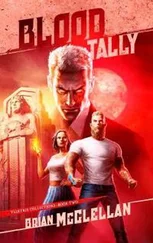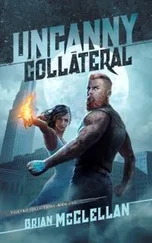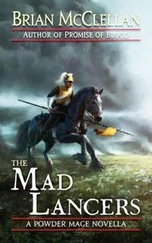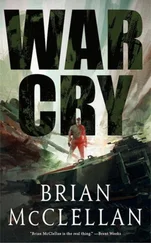“Oh, that’s too bad. What are you doing in Landfall, Plinnith?”
“Dad was a farmer out near Redstone. He died last fall, so Mom’s sent me to the capital for work.”
Michel continued to fire questions at the boy, going on for almost five minutes, needling him for details that normal people wouldn’t possibly ask for before he finally gave it a rest. He dropped the pretense, poured himself another beer, and said, “Not half-bad.”
The boy beamed back at him.
“Not great, either,” Michel continued. “I didn’t believe a damned word of it.”
“But you already know I’m not a farmer’s son named Plinnith!” Dristan protested.
“Do I?” Michel shrugged. “You have no idea what I know. It’s your job to convince me you’re the person you say you are.” He swirled the beer around, wishing for the thousandth time that there was a better way to do this. Kids came off the street all the time, looking to join the Blackhats. Most of them became low-level enforcers, roughing up anyone who spoke out against the Lady Chancellor. The smart ones might become political liaisons or pencil-pushers. The rest became informants, spying on the very population the Lady Chancellor governed.
Informants had the most dangerous job and got the least amount of training. What good was an informant, after all, if anyone spotted them hanging around with a known Blackhat? The best they could expect was a few days in an out-of-the-way spot with someone like Michel – an experienced informant who’d lived long enough to become a bureaucrat. People knew Michel was a Blackhat, of course. They just didn’t know he’d climbed the ranks by selling out his neighbors.
“Look,” Michel said. “It’s all about relating to people.”
“What do you mean?” Dristan asked.
“You and me, we’re Kressians, right? I mean, we call ourselves Fatrastan, but even if we were born here our grandparents were born in the Nine. Follow?”
“I think?”
“Now, our grandparents might have hated each other back in the old country. Maybe yours were Kez, mine were Adran. Mortal enemies. But once they’d come over the ocean they now had something in common. So they put aside their old hatreds and now they just call themselves Fatrastans. Right?”
Dristan didn’t look impressed. “I suppose…”
Michel cut him off. “They related . They found out what they had in common and worked together. During the revolution all of us who considered ourselves Fatrastan worked with the Palo against the Kez. Another instance of relating against a common enemy.”
“But Fatrastans and Palo hate each other now.”
“Sure. Because loyalties change once they’re no longer convenient. Remember, informants have to blend in. The loyalties you wear on your sleeve have to match the people around you. It’s a kind of theatrics, and a good actor will tell you that the best way to get into a character’s head will be by relating to them, even if they’re the villain. To inform on enemies of the state, you have to think like one; to become one.” He made an expansive gesture. “That’s spycraft, summed up.”
“I thought we weren’t spies.”
“‘Informantcraft’ isn’t a word,” Michel said. He squinted around the bar, scrunching his face, and considered another drink. Maybe just half a glass.
“You seem older than you look,” Dristan observed.
Michel headed around the bar toward the tap. “It’s because I know what I’m about. Learn confidence – or at least how to feign it – and everyone will assume you’re ten years older than you really are. Helps to know your craft, too, and in this case my craft is keeping an eye on the Lady Chancellor’s people.” Michel put the glass up against the barrel, holding it there for several moments before opening the tap.
Dristan seemed like a good kid. He might just be smart enough to make it through a few years of spying. Michel would give him an extra day or two of training, but he’d already decided to give Silver Rose Salacia – the person who would be Dristan’s handler – the thumbs-up. Unfortunately, in this line of work toss them in the bay and hope they learn to swim was the most efficient method of training. “What do you get out of this?” he asked, filling a second beer and sliding it down the bar to Dristan.
“I get a Rose, don’t I?”
The Roses were the Blackhat badge of authority, medallions that gave them their names – an Iron or Bronze Rose indicated a low rank, Brass or Silver a mid-rank, and Gold – well, Gold Roses were the Blackhat elites, privy to all the secrets and machinations of the Fatrastan government. They ran the country on behalf of the Lady Chancellor and held the wealth of the continent in their palms. Everyone coveted the Gold Roses. Few got them.
But even getting an Iron Rose could be a huge step up for someone from the slums like Dristan. If Dristan survived a mission or two he might jump straight up to a Brass Rose.
“Other than the Rose,” Michel said.
Dristan took a drink, looking down at his hands for a long moment, then said, “The Blackhats will take care of my sisters. Keep them fed, housed, out of the whorehouses. They’ll take care of them even if I die, so long as I remain loyal.”
Michel nodded. It was a common enough story. A lot of horrible shit was said about the Blackhats – most of it true – but they always took care of their own. “A piece of advice for you,” he said. “You’ve got a life right now, a family, happy memories?” He held out his hand, pointing to invisible objects on his palm.
“Yeah.”
“When you go into cover, you have to become someone else entirely. Don’t think about your old life, not even for a second, or you may betray yourself in a weak moment. Eat, sleep, breathe, even think like Plinnith the farmer’s son, or whoever the pit you become.” He made a fist. “Take all those happy thoughts and put them into a little marble in the back corner of your brain and don’t even look at it until the job is finished. I’m not an informant anymore – just a midlevel Blackhat serving at her Lady Chancellor’s pleasure – but I was in your spot once. The marble trick is how I got through it.”
“You were a spy – er, an informant?”
“Why do you think I’m sitting here telling you all this? I’ve been undercover three times, which is twice too many for someone operating in a single city. It’s a miracle nobody recognized me those second and third stints. But it also means I’ve done this a lot, so I get a few hours to pass on my experience to somebody like you.”
“Why did you do it?”
Michel considered the question for a moment. “Like you, I did it for the Rose.” He looped a thumb through the cord around his neck and showed Dristan the silver medallion that dangled against his chest at all times. “I also did it for Fatrasta,” he said honestly. “Because I wanted to make a difference.”
“Did you make a difference?”
“When you finish your first assignment, come and find me. I’ll tell you about the Powder Mage Affair.” Michel looked at his half-full glass and set it on the bar, more than a little annoyed with himself. Four glasses of beer before seven in the morning was excessive, even by his standards. There was a sudden thump, bringing Michel’s head around, and the door to the pub suddenly opened.
A familiar face peered in. It was a man in a black, long-sleeved shirt with a row of black buttons up the left breast and matching black trousers – the typical uniform of the Lady Chancellor’s secret police. He was missing a button from his left cuff, which irritated Michel to no end. He wore a Brass Rose openly pinned to his shirt. “Agent Bravis, sir,” he said.
Читать дальше
